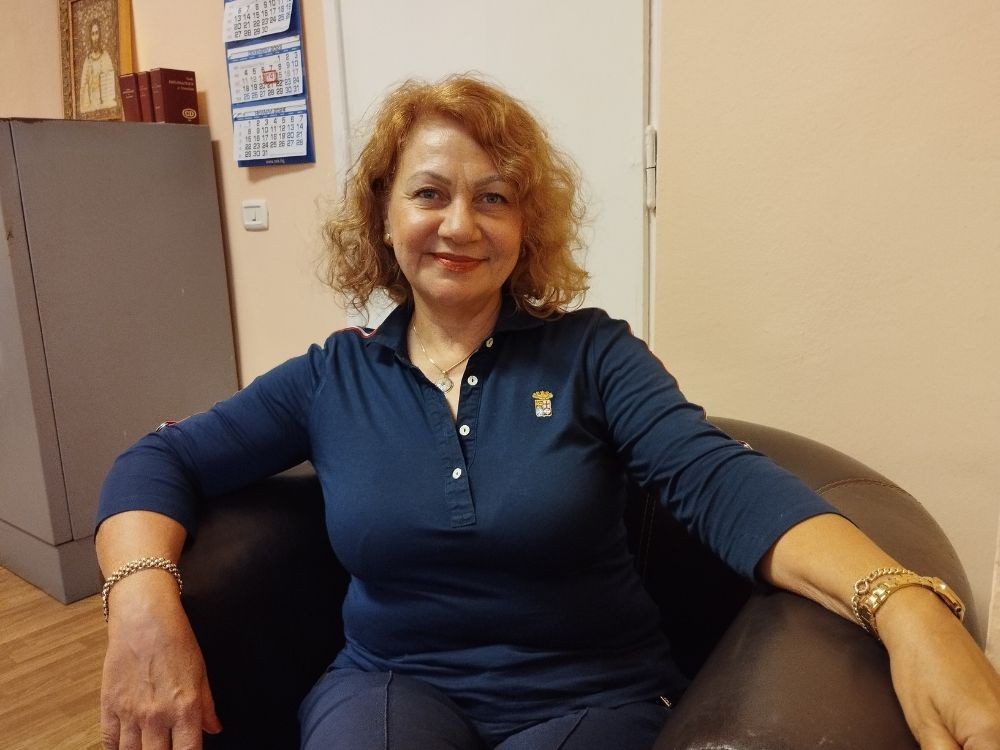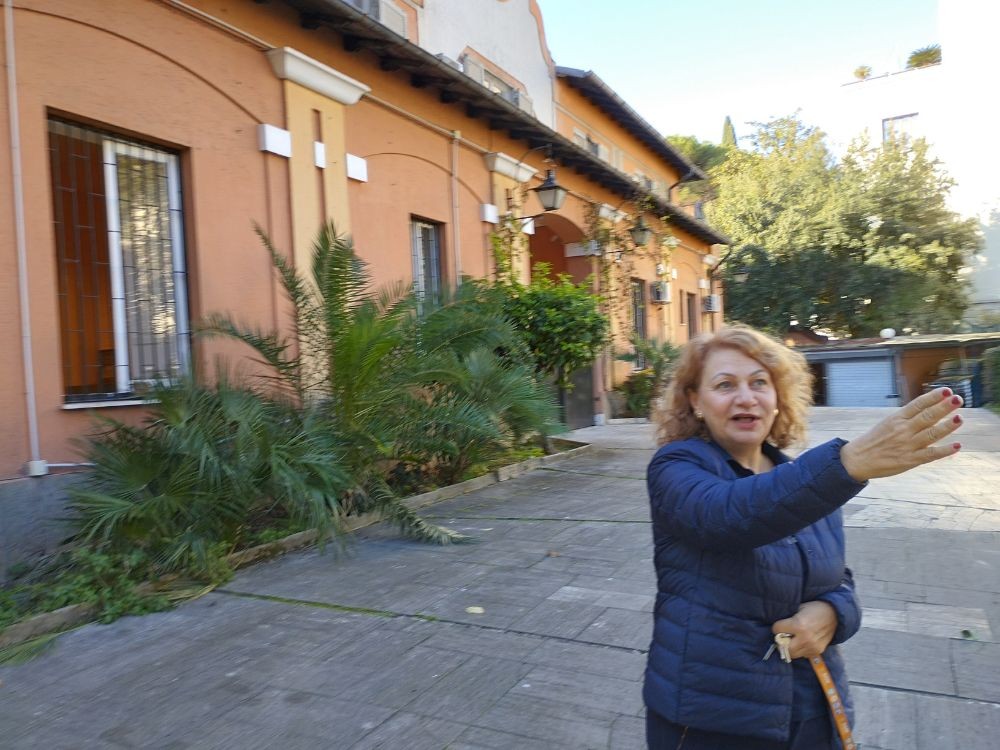According to official statistics, there are 50,000 Bulgarian citizens living on the territory of Italy, but unofficially their number is around 90,000, Nelly Simeonova, head of the consular section at the Bulgarian embassy in Rome said in an interview with Radio Bulgaria. The biggest number of Bulgarians are concentrated in Northern Italy, around the cities of Milan, Bologna, Florence and Turin, where they mostly work in industrial production, she says. There are others living in the southern part of the country and there they find work as domestic help, in farming or in construction. As it turns out, the identity documents of many of the Bulgarians in Italy have expired, but their workload prevents them from making the trip to the consular office to renew them. “We try not to fine them even though we should by law, but we try to be understanding and to issue them new documents as soon as possible,” Nelly Simeonova says.
“My impressions are that 80% of the people here work without a contract which is not a good thing because they have no social security or labour insurance. And if they need medical treatment of any kind they cannot be treated at medical establishments for free,” says Nelly Simeonova. There is no change with regard to undeclared work, she goes on. “This is corroborated by the fact that most Bulgarians want to make payments in cash even though the POS method of payment has been available for years. They don’t want to pay by card because obviously they do not have bank accounts.”
There are many instances of violation of the labour rights of the Bulgarians in Italy, and many Bulgarians without labour contracts turn to the consular section for help:
“Of course, we contact the employers and try to do what we can to help, often we at least get them to pay people what they are due. If our compatriots wish to return to Bulgaria – we get them to pay for their return tickets which is a very difficult thing, involving protracted negotiations, heated arguments, but on the whole, we have been able to help. But in many cases that is impossible, because we can’t even find the employer, let alone prove that a given person has ever worked at all. Very often it turns out that the employers who have scammed them are from Southeastern Europe, I won’t say which countries, but that is a fact,” Nelly Simeonova says.
She says consular work is a big challenge and if you are not in love with the job you cannot handle the strain, react quickly, put up with the verbal abuse “which usually comes from people who are in a tight spot and who want to vent their anger targeting us all because they want their problems solved.” It is important to find the right steps in order to solve various conundrums, and Mrs. Simeonova has ample experience, as she has been in the profession since 2005 and has been consul in Tunis, Madrid and Istanbul, and now Rome. She always has her emergency phone with her, and is available to Bulgarians 24/7. She gets calls for all sorts of problems, but sometimes there are happy occasions:
“In 2023 we had 12 weddings. Interestingly, none of the couples actually lived in Italy – they all came from Bulgaria especially to get married here. There was a couple from Turkey with dual citizenship – they were so happy to have their wedding here, it was absolutely thrilling. The other happy occasion is, of course, when we get a call about a newborn baby – people ask what to do, how to fill in the documents. That is a very pleasant thing. Of course, there are Bulgarian babies born in Italy, but we don’t know the numbers because some people don’t call the embassy as they are familiar with the procedure and do not need our advice. Moreover, ever since Bulgaria joined the EU, Bulgarians living in other countries do not need to register at the embassy. And that means we can’t keep score of how many families live in Italy, how many children have been born.”
Quite a lot of things changed in 2023 in the services offered to Bulgarian citizens, says Nelly Simeonova:
“The best thing is that we now have a biometric station. As our embassy is also accredited for Malta, we had two consular days on site. We collected biometric data from 30 Bulgarian citizens whose IDs had expired and they were, in practical terms, blocked on the island. Now their documents are ready. This biometric station allows us to collect biometric data so that people do not need to come to the embassy, and that is such a convenience for them. 
In 2024, we are planning to have more on-site consular days in Italy so we can offer services to the people who are blocked where they are residing and are unable to come to the consular office.”
Translated and posted by Milena Daynova
Photos: Elena Karkalanova
The Professional Association of Robotics, Automation and Innovation s unites over 80 Bulgarian and international companies that have one global objective - to establish our country as a center for technology development . To achieve this dream,..
The votes in the early parliamentary elections on October 27 outlined an even more diverse parliament. The initial forecasts were for a 9-party National Assembly, but the results that the CEC announced after processing all the..
The highest concentration of microplastics along the Bulgarian Black Sea coast is found in the Bay of Sozopol, according to a study by the Laboratory of Marine Ecology in Sozopol published in the international journal Marine Pollution Bulletin...
The traditional Bulgarian Christmas picnic, organized by the Bulgarian Cultural and Social Association "Rodina - Sydney" and the Bulgarian School..
Radmila Sekerinska from North Macedonia appointed NATO Deputy Secretary General NATO Secretary General Mark Rutte has appointed Radmila Sekerinska..
Two graduates of the Bulgarian School "Saints Cyril and Methodius" in Jordan presented their achievements at an event at their school "Hadi al Muhammadi"..

+359 2 9336 661
